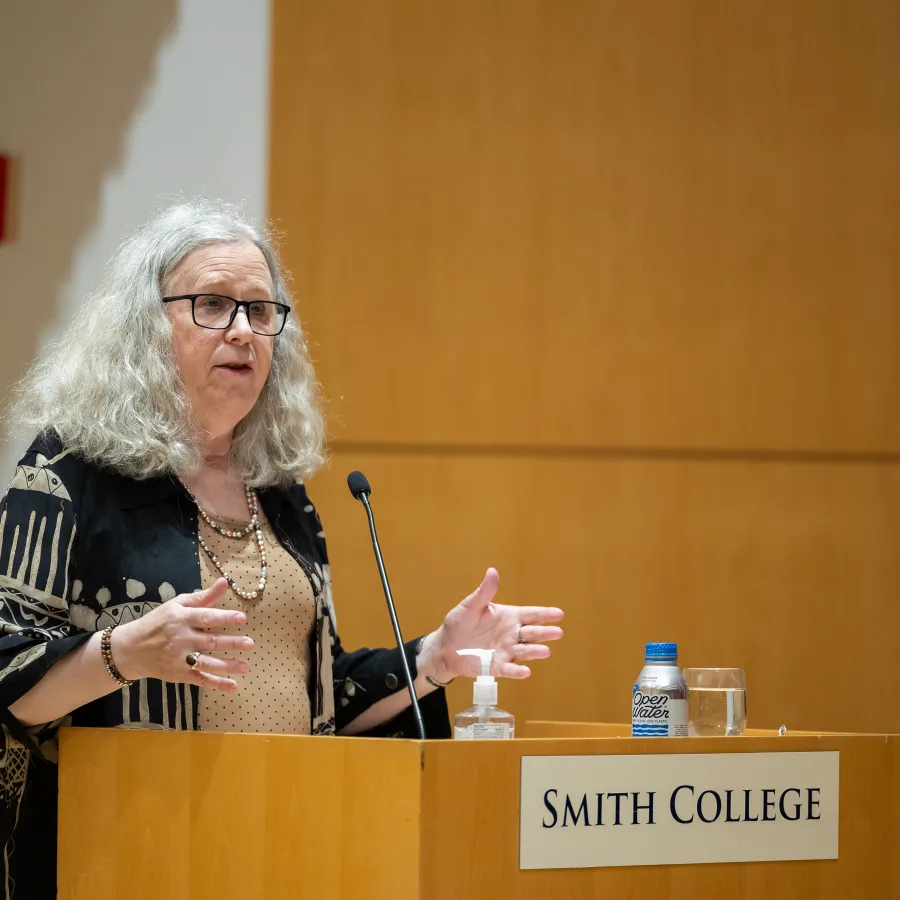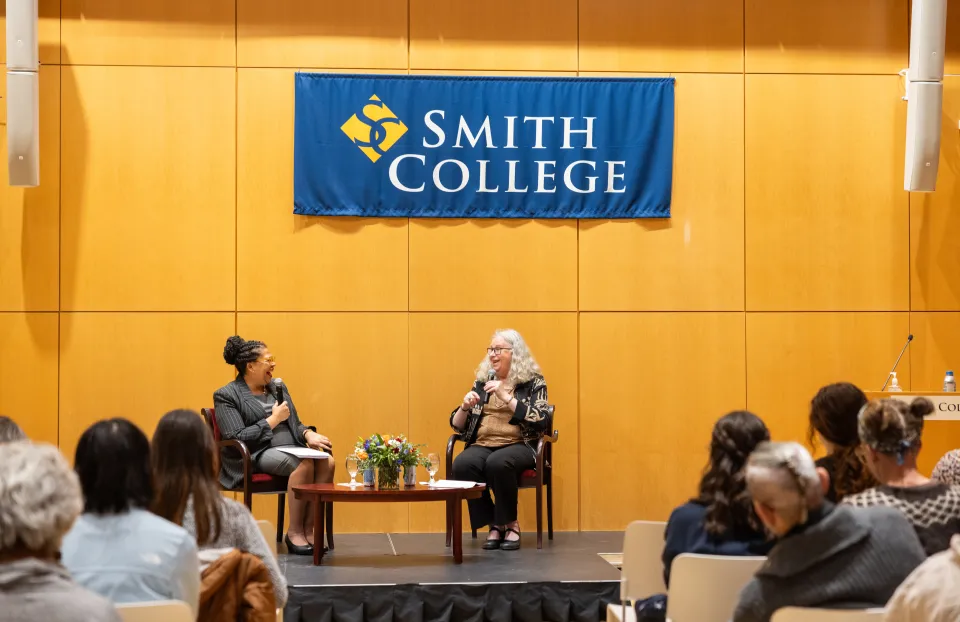Public Health Leader Urges Smith College Students to Keep Advocating for the Common Good
News of Note

Photo by Jessica Scranton
Published November 5, 2025
In a Smith College colloquium on “The Future of Public Health in the United States,” former assistant U.S. secretary for health Admiral Rachel Levine emphasized that the mission of public health must remain above politics.
“The decisions we make are based on standards of medicine,” she told an audience of more than 200 students, faculty, and staff in the Campus Center Carroll Room. “It’s important that we all stand up for the scientific process” behind those decisions.
At a time when it’s estimated that thousands of public health employees have been laid off or fired from their jobs and numerous research and service programs have been eliminated, Levine is focused on “continuing to work for the common good.”
“Public health requires us to address systemic barriers that patients and families face,” she said. “I choose to be optimistic because I want to make things better. The wheel will turn.”
Students can play a role in ensuring that progress continues, Levine added. “Your actions have the power to shape a better and more inclusive world,” she said. “The spirit of community you have here at Smith is more important than ever.”
During a Q&A with Smith President Sarah Willie-LeBreton, the audience learned more about the admiral’s career path, and her work on issues ranging from suicide prevention for LGBTQ+ youth to the health impacts of climate change.

President Sarah Willie-LeBreton, left, speaks with Admiral Rachel Levine during the Q&A portion of a recent Smith College Colloquium.
Photo by Jessica Scranton
When asked by Willie-LeBreton how colleges can support the wellbeing of students and staff, Levine described the “vital intersection” between physical and mental health. “Whereas we used to think of mental health as secondary to physical health needs, it might now be the other way around,” she said.
As for specific strategies to cope with stress, Levine—who received an honorary degree from the college earlier this year—said she visualizes the calm in the eye of a hurricane, and the many ways that people can “find their centers”—be it meditation, music, faith, or pet therapy. “Those strategies will be different for different people and will differ over time,” she added. “Colleges can discuss and foster that calm time.”
A retired admiral in the Public Health Service Commissioned Corps, Levine is only the sixth female, and the first openly transgender four-star officer in U.S. history. She previously served as Pennsylvania’s physician general and secretary of health, guiding that state through the early days of the COVID-19 pandemic.
The pandemic “was really the first time many Americans discovered the public health system, and we started to talk about the importance of health equity,” Levine said. “Achieving health equity means valuing everyone equally. We have not truly made progress until we have all made progress.”
Earlier in the day, Levine spoke with students in biological sciences professor Rob Dorit’s introduction to public health course.
Dorit said he reached out to Levine about returning to campus after hearing her speak at Commencement. As a former federal official, Levine is “intimately familiar with the workings of the public health system from the inside,” Dorit said. “I wanted students to hear from a committed professional about a career spent in public health.”
Levine left students in the audience with this message: “You are the ones who are going to fix things,” she said. “It’s so important to have that optimism and moral clarity. Be prepared—that’s why you go to Smith.”